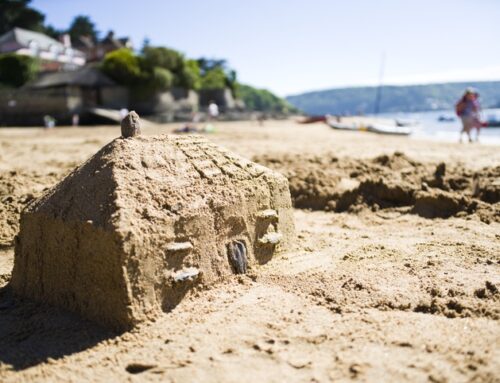Home » Uncategorised »
Bank of Mum and Dad Causes Bust-Ups for Families
This article is an external press release originally published on the Landlord News website, which has now been migrated to the Just Landlords blog.

The rise of the bank of mum and dad is causing bust-ups between parents and their adult children, who admit that providing financial assistance is not without its risks, according to new research from Key, an independent equity release adviser.
The firm’s nationwide study found that nearly one in five (18%) over-55s have not told all of their children exactly how much their siblings have received, while two out of five (41%) say that they decided how much financial help to give based on how well-off their children were.
Customers of the bank of mum and dad (aka, their children) themselves admit that there are problems. 25% of under-40s say that the financial hand-outs that they’ve received have caused friction with siblings, while three-quarters admit to feeling guilty about the cash that they’ve received.
Industry estimates show that the bank of mum and dad is expected to pay out around £5.8 billion for housing transactions this year alone, with Key’s research showing that the bank of mum and dad is also helping with a range of other financial issues.
Around 10% of homeowners aged 55+ who expect to give money to help younger members of their families will pay for cars, while 8% will put money towards a wedding.
However, Key warns that parents and their children need to be clear from the outset if hand-outs are loans or gifts, and urges both sides to seek independent advice if possible, to avoid the risk of disputes ending in court.
The intergenerational divide

Bank of Mum and Dad Causes Bust-Ups for Families
Key’s research found that around two out of three (66%) homeowners aged 55+ believe that their children would be happy for them to give more money to their siblings if they need it. However, 26% say that they are too worried about disputes to discuss money with their children.
The increase in financing by the bank of mum and dad is not driven by children, with 67% of under-40s who are renting agreeing that parents don’t have a duty to provide money. That said, four out of five believe that the intergenerational wealth divide needs to be addressed urgently.
For some parents, and their children, it is not an issue, with 16% of parents admitting that they cannot afford to give any money. 22% of adult children even say that they may have to provide financial support to their own elderly parents.
Will Hale, the CEO of Key, comments: “It is natural for parents to want to help children and grandchildren, but it is desperately sad if that comes with emotional costs on top of the financial costs.
“In an ideal world, the whole family should be involved in discussions about how much money is being paid out and, in general, the research shows most would be perfectly happy for siblings to receive more if they need the help more.”
He continues: “But, of course, we don’t live in an ideal world and, in extreme cases, bank of mum and dad bust-ups can end up in court. We believe advice is key and families should, wherever possible, seek independent help, whether it’s from financial advisers or lawyers. Our experience also indicates that the option of face-to-face advice can be important in getting all parties together to help everyone understand and agree on the approach.”
Advice
When loaning or gifting money to your adult children, you should consider the following:
- Establish from the beginning whether the money is a gift or a loan. If it is a gift, then there should be fewer problems.
- If it is a loan, then it’s worth seeking legal advice, particularly if the loan is for buying a property and your child is married or living with a partner.
- If you’re a homeowner and become a shared owner of your child’s property, then your interest in the property will be regarded as a second home, which means that you will be charged a higher rate of Stamp Duty on the transaction.
- If the money is a gift, it could incur an Inheritance Tax charge, so specialist financial advice on estate planning could be valuable.
- It is important to consider updating your will, particularly if you have more than one child and potential beneficiaries.




